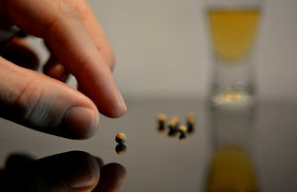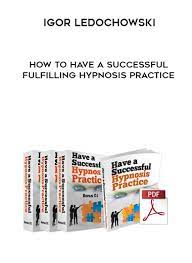
BBC Horizon – The Power Of The Placebo
| Product Type | DVD |
|---|---|
| Format Type | TVRip – 1 MP4 |
| Author | BBC Horizon |
| File Size | 968.41 MB |
The placebo effect started to be investigated during the mid-twentieth century, when it became standard practice for scientists to use double-blind randomised trials in research. This meant that a procedure or treatment would be carried out with two groups: one group that would actually receive the treatment, and another, the so-called “control group,” who would receive inert substances, even though they believed that they were being treated. In medical trials, researchers began to find that, for some unknown reason, the control groups would report some effect. They would report that their symptoms had alleviated, or that pain had faded away, even though they had had no treatment. Since then, a vast array of different conditions have been reported as benefitting from placebos, including acne, Crohn’s disease, epilepsy, erectile dysfunction, ulcers, multiple sclerosis, osteoarthritis, rheumatism and colitis.
At first, scientists believed that the placebo effect was just a subjective phenomenon – in other words, that people were just imagining that their symptoms had improved, without any real physiological changes taking place. But it eventually became apparent that this wasn’t the case. Even though patients were receiving inert substances with no physiological effects, real, measurable physiological changes were occurring. This first became evident in a 1978 study in which 40 patients were given a placebo pain killer following dental treatment. Shortly afterwards, they were divided into two groups, one of which received another placebo pain killer, while the other received naloxene, a substance that stops the release of endorphins in the brain. The second group reported significantly more pain than the first group, suggesting that the placebo had actually had a chemical effect in the brain, which was now being blocked by the naloxene. This seemed to show that placebos could bring about the same chemical changes as actual drugs.
Later, brain-imaging technology verified the physiological effects of placebos. Studies found that, when taken as pain-killers, placebos brought decreased activity in parts of the brain associated with pain, and made use of many of the same neurotransmitters and neural pathways as opioids and marijuana. In other words, the placebos were actually causing the release of endogenous chemicals in the brain. In a similar way, researchers found that, when taken by patients with Parkinson’s disease, placebos could cause the release of dopamine in the brain. Other studies have shown similar neurological changes relating to depression, anxiety and fatigue, and other physiological changes such as blood pressure, heart rate and the activation of the immune system. Studies of the use of placebos in comparison to anti-depressants have suggested that much of the latter’s effect is due to them working as a placebo.
Research has also shown that it may not even be necessarily to deceivepatients, since placebos can still work even when we know that we’re taking them. In a study published in 2010, the Harvard Professor of Medicine Ted Kaptchuk compared two groups of patients suffering from Irritable Bowel Syndrome. While one group didn’t receive any treatment, the other were given placebos. However, unlike most studies, members of the second group were told that they were taking fake drugs – to emphasise the point, the bottles of pills were labelled “placebo pills.” Kaptchuk was shocked to find that, despite this, the members of the second group reported significant relief of symptoms. This seems bizarre, although it is probably significant that Kaptchuk’s team were careful to tell the patients that placebos often have healing effects.
article continues after advertisement
There is also the strange phenomenon of “sham surgery,” when surgeons follow the normal process of an operation – making an incision, picking up instruments, giving instructions to colleagues, and so on – but do not actually perform the operation. This also sounds bizarre, but repeated trials have found that sham surgery is very effective. A 2014 review of 53 trials in which sham surgery was practised alongside normal surgical procedures found that the former was beneficial in 74% of trials. In half the trials, the sham surgery was found to be as beneficial as the real procedure. Of course, this could simply mean that a lot of unnecessary surgical procedures are being carried out, but it seems very likely that the placebo effect is a big factor.
Implications of the Placebo Effect
The placebo effect is so familiar nowadays that we may need to remind ourselves of how strange it really is. Isn’t it bizarre that pain relief and healing can take place without any actual treatment? It appears that, even now, many scientists don’t grasp the full implications of the placebo effect. Despite the massive evidence to contrary, some sceptical observers still insist the effect is simply due to convincing patients they feel better.
I would say there are two main implications of the placebo effect. The first is that the human mind has the capacity to powerfully influence many aspects of our physiology, including our experience of pain, the alleviation of symptoms and the actual healing of some conditions. This means that we have much more control of our own health, and our own bodies, than we normally assume. Our bodies are not just machines that can become ill due to wear and tear, or accidental or inherited mechanical problems, and that can only be fixed by medical interventions. We’re not just ghostly entities that happen to be attached to our machine-like bodies (and that have emerged from their machinery) and can’t alter their functioning, except by physical means. Our mind is intricately interconnected with the body, and unconsciously, with our beliefs and intentions, we influence our health. We have a great potential for self-regulation and self-healing that we are barely aware of.
The second major implication is that the conventional view of the relationship between the mind and the brain may be wrong. In materialistic science, the mind is seen as a by-product of the brain, a kind of shadow that is cast by neurological processes. However, if this were the case, how would it be possible for mental processes to influence the brain and the body? This would be like saying that the images on a computer screen can affect the workings of the computer’s hard drive. A shadow cannot influence the object that it is a shadow of. The placebo effect suggests the mind is more than just the product of matter, that it is, in some sense, primary rather secondary to the brain.
BBC Horizon – The Power Of The Placebo
Readmore About : BBC Horizon







































Reviews
There are no reviews yet.